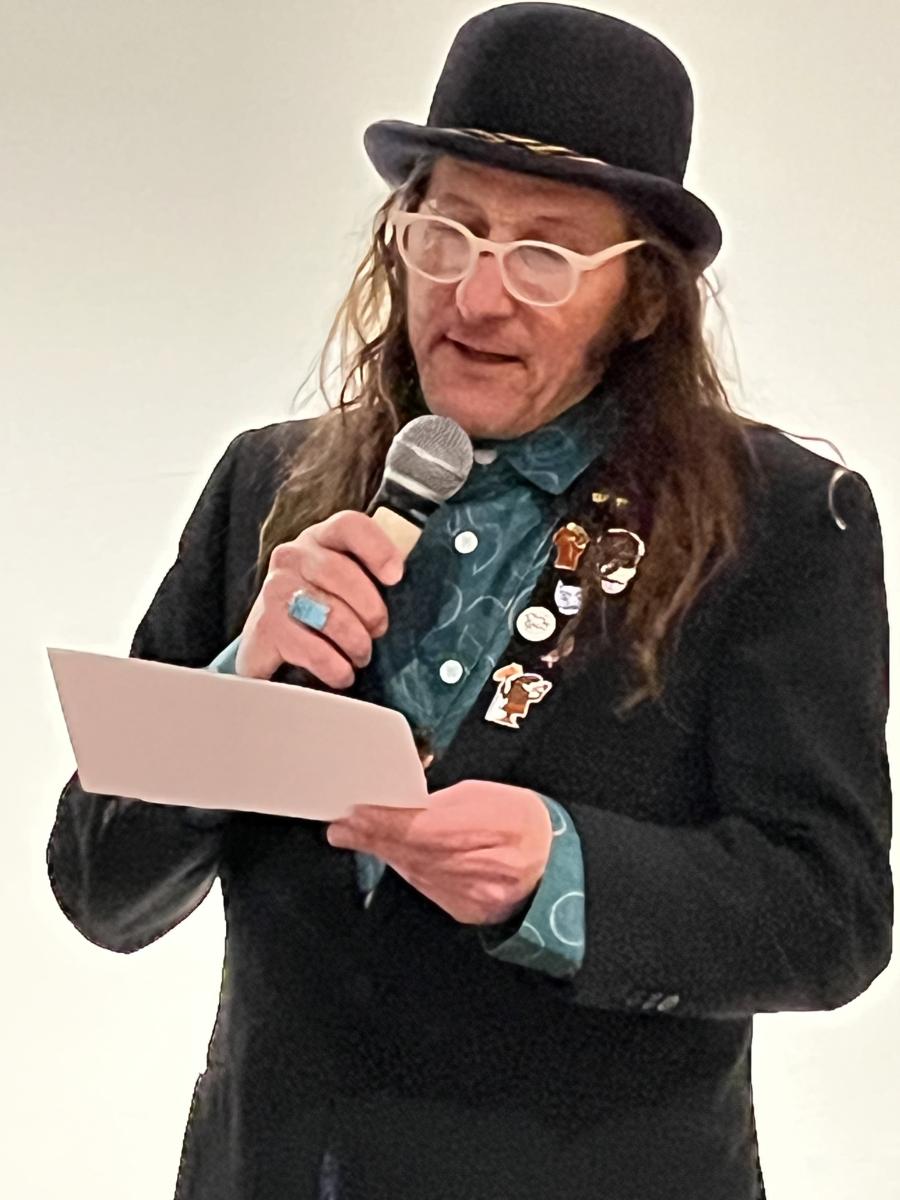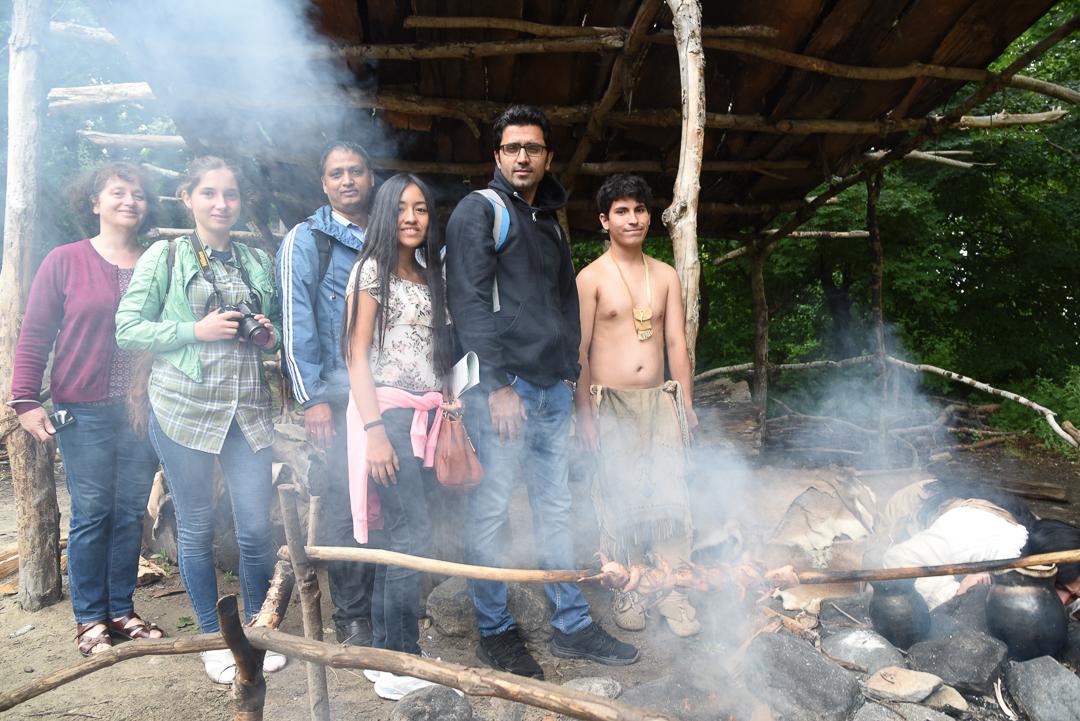
By Chantelle Bacigalupo, Katharine Norris, Jess Cherofsky
The first Cultural Survival Indigenous Artisan Institute in July 2017 brought four talented artisans from across the world to spend the week between Cultural Survival’s two July Bazaars in workshops, trainings, and cultural exchanges. Throughout the week, they learned valuable skills to improve their sales and marketing and built relationships and connections with other artists and local Indigenous people.
Ujjwal Shrestha of Nepal sells beautifully detailed sterling silver jewelry, scarves, and paintings that he and other artisans create. Ganna Nepyivoda, a Hotsul crafter from Ukraine, sells her pysankas, or intricately decorated eggs, as well as carved woodwork and embroidered shirts made by other artists. Kashmiri artist Akhtar Mir of India represents his family and community in bringing their delicate embroidered cashmere scarves to the Bazaars. Amalia Palomino, Quechua from Peru, sells hand-painted retablos and figurines made from sun-dried clay that she and her family craft, which depict scenes from Peruvian daily life and mythology.
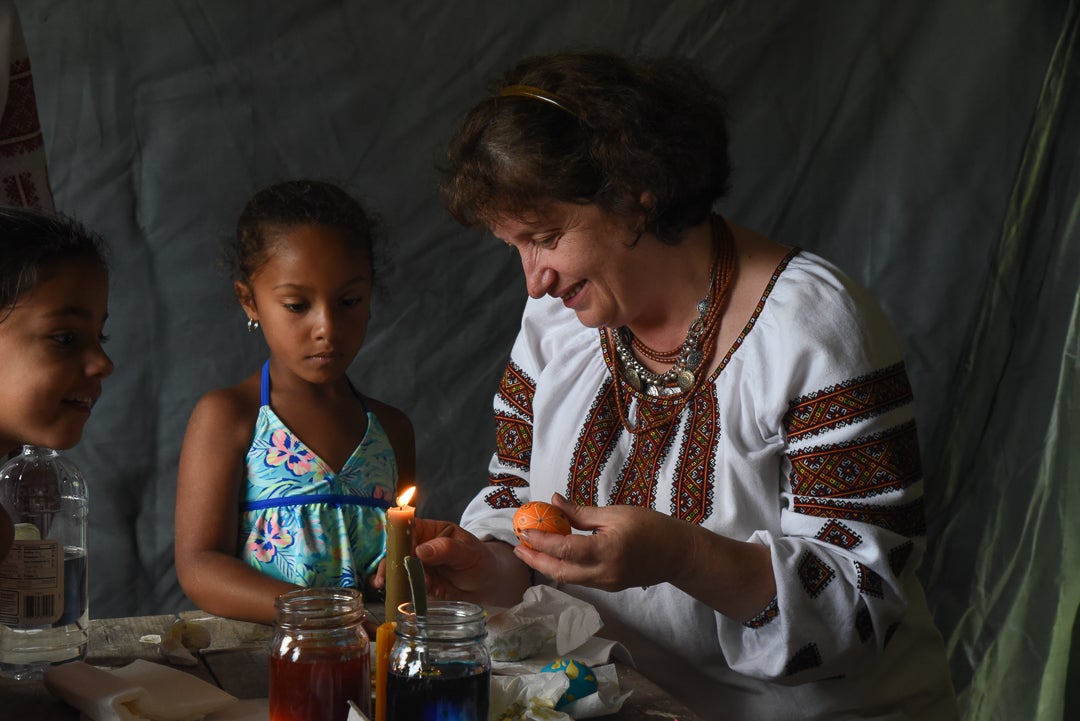
The artists came together in Plymouth, MA, following the Cultural Survival Bazaar on the Plymouth waterfront on July 22 and 23. The week began with professional development workshops held in a beautiful house in Plymouth overlooking a lake, where the artisans lodged for the duration of the Institute. Mark Camp, deputy executive director of Cultural Survival, discussed the importance of market research for successful sales and proposed strategies for conducting research during the Bazaars. Later that day, longtime Bazaar vendor Eliza Strode, the founder of Guatemalan fair trade business A Thread of Hope, conducted a workshop on applied market research and booth space design. “Eliza and Mark were able to talk about very difficult things, in a very simple way,” said Ganna.
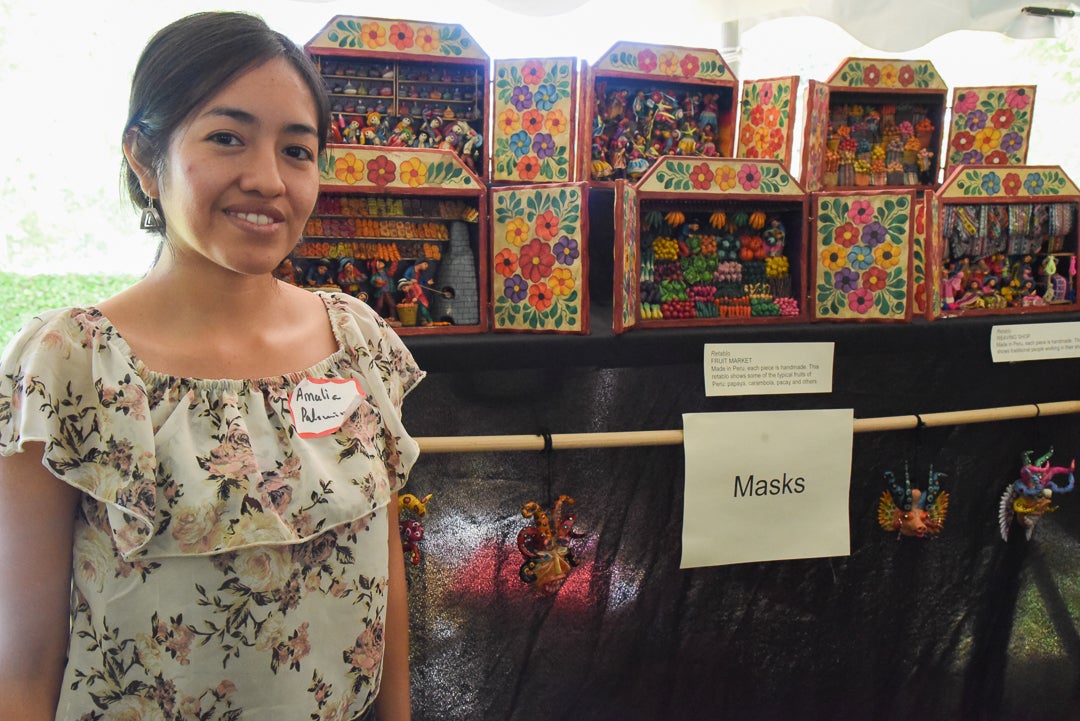
Other sales and business experiences during the week included a visit to Equal Exchange, a worker-owned Fair Trade coffee cooperative headquartered in Bridgewater, MA, and a question-and-answer session with the owner of Nomad, a fair trade retail store in Cambridge. At Equal Exchange, the participants learned about the Fair Trade coffee business and were given a behind-the-scenes tour of the facilities. At the Nomad store, the artisans had the chance to learn directly from the owner about the purchasing side of wholesale, discussing what stores look for, what types of crafts sell well, and more intricacies of store-based retail. “The experience was extremely valuable and useful because I am the artist, not the seller. The workshops where people talked about how to sell the products was very useful for me,” Ganna said.
Two small pop-up markets held at Plimoth Plantation Museum and in partnership with the Main Street Artist Market in Hyannis, MA, provided the artists the opportunity to apply what they had learned from the workshops and activities directly, in preparation for the second July Cultural Survival Bazaar the following weekend.
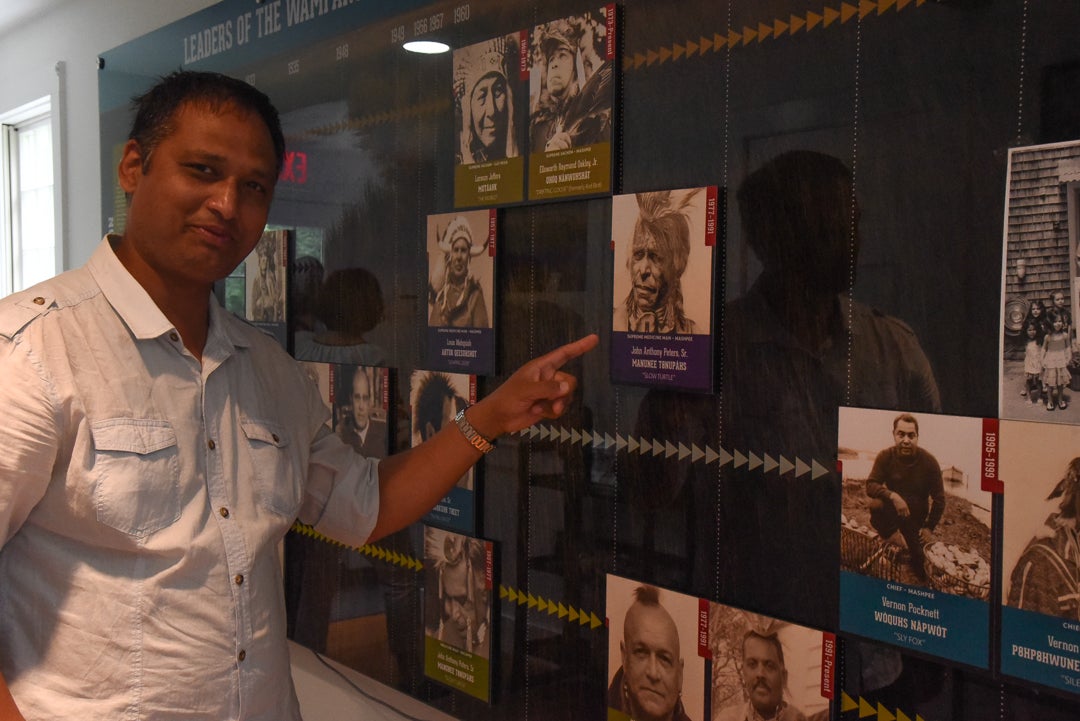
Cultural exchange and connection-building is one the features artists and vendors value most in the Bazaars, in addition to sales, and opportunities for exchange during the Institute were plentiful. At Plimoth Plantation Museum in Plymouth, MA, they met with Darius Coombs, Director of Wampanoag and Algonkian Research and Interpretive Training, and toured the Wampanoag home site, learning about the traditional lives and practices of the Indigenous Wampanoag Peoples of this region at the time of the arrival of the European colonizers and about their lives and cultures today. Some artisans were excited to notice similarities between the Wampanoag cultures and their own.
On the last day of the Artisan Institute, the artisans visited the Mashpee Wampanoag Youth Summer Program, a camp held in collaboration with the Wôpanâak Language Reclamation Project. During their time there, Ganna, Amalia, and Ujjwal held craft demonstrations, allowing the children to try making pysankas (painted eggs), retablos, and handmade paper, and Mir taught them to wrap a scarf as is traditional done in his Kashmiri culture. They toured the Mukayuhsak Weekuw Wôpanâak language school and enjoyed a traditional Wampanoag meal of turkey and squash soup and roasted fish.
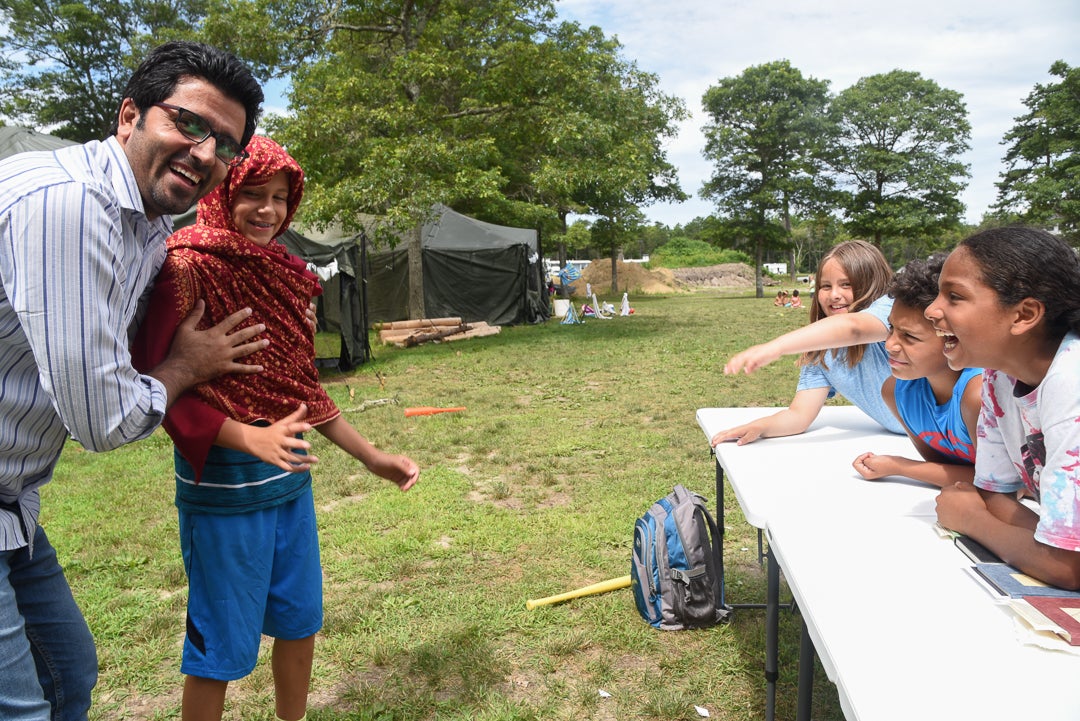
The rare unplanned time during a packed week of formal activities was rich with cultural exchange as well, as the artisans spent time getting to know each other and their cultures. They ate “family dinners” throughout the week and enjoyed canoeing on the lake and visiting the beach. “It was so nice to be here with all artisans from other worlds. We had a chance to exchange our crafts, exchange our cultures, and we learned each other’s languages too,” said Ujjwal.
“There are so many memories that I will cherish throughout my life from this experience,” said Mir.

